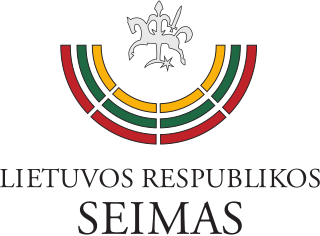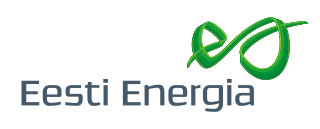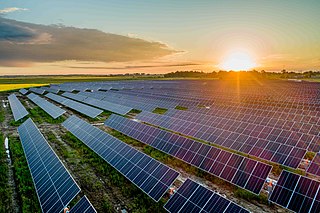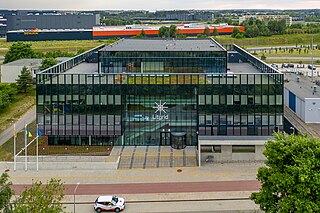Related Research Articles

The Seimas of the Republic of Lithuania, or simply the Seimas, is the unicameral legislative body of the Republic of Lithuania. The Seimas constitutes the legislative branch of government in Lithuania, enacting laws and amendments to the Constitution, passing the budget, confirming the Prime Minister and the Government and controlling their activities.

The Ignalina Nuclear Power Plant is a decommissioned two-unit RBMK-1500 nuclear power station in Visaginas Municipality, Lithuania. It was named after the nearby city of Ignalina. Due to the plant's similarities to the infamous Chernobyl Nuclear Power Plant in both reactor design and lack of a robust containment building, Lithuania agreed to close the plant as part of its agreement of accession to the European Union. Unit 1 was closed in December 2004; Unit 2 in December 2009. The plant accounted for 25% of Lithuania's electricity generating capacity and supplied about 70% of Lithuania's electrical demand. It was closed on December 31, 2009. Proposals have been made to construct a new nuclear power plant at the site, but such plans have yet to come to fruition.

Gediminas Kirkilas was a Lithuanian politician who was Prime Minister of Lithuania from 2006 to 2008.
NordBalt is a submarine power cable between Klaipėda in Lithuania and Nybro in Sweden. The purpose of the cable is to facilitate the trading of power between the Baltic and Nordic electricity markets, and to increase the supply and energy security in both markets.

Eesti Energia AS is a public limited energy company in Estonia with its headquarters in Tallinn. It is the world's biggest oil shale to energy company. The company was founded in 1939. As of 2014, it operates in Estonia, Latvia, Lithuania, Finland, Jordan and Utah, United States. In Estonia, the company operates under the name Eesti Energia, while using the brand name Enefit for international operations. The main raw material for energy production – oil shale – is extracted from mines located in Eastern-Estonia and owned by the company. The group of Eesti Energia has three main operation areas: electricity generation, shale oil production, and sale and distribution of electricity. Its shares are owned by the Government of Estonia.

Ignitis Group is a state-owned energy holding company located in Vilnius, Lithuania. The Group’s core business is focused on operating Lithuania’s electricity distribution network (Networks) and managing and developing its Green Generation Portfolio. The Group also manages strategically important reserve capacities and provides services to its customers, including the supply of electricity and natural gas, solar, e-mobility, energy efficiency and innovative energy solutions for private and business customers.

Visaginas Nuclear Power Plant was a planned nuclear power plant project in Lithuania. It was proposed to be built at the site of the closed Ignalina Nuclear Power Plant, which was shut down on 31 December 2009 in accordance with Lithuania's accession agreement to the European Union. The two reactors of the Ignalina plant are currently undergoing a decommissioning process.

The Government of Lithuania, officially the Government of the Republic of Lithuania, is the cabinet of Lithuania, exercising executive power in the country. Among other responsibilities, it executes laws and resolutions of the parliament, the Seimas, and the decrees of the President, manages state property and, together with the president, executes the foreign policy of the country. The Government also has the right of legislative initiative, puts together the state budget and presents it to the Seimas for approval.

Liberals' Movement is a conservative-liberal political party in Lithuania.
The Samogitian Party is a minor ethnic-regionalist autonomist party of Lithuania's Samogitian minority founded in February 2009.
Lithuania does not have any operational nuclear power reactor. It operated two RBMK reactors at Ignalina Nuclear Power Plant which were shut down in 2004 and 2009.

Parliamentary elections were held in Lithuania on 14 October 2012, with a second round on 28 October in the constituencies where no candidate won a majority in the first round of voting. All 141 seats in the Seimas were up for election; 71 in single-seat constituencies elected by majority vote and the remaining 70 in a nationwide constituency based on proportional representation. Together with the elections, a referendum on the construction of a new nuclear power plant was held.

Lithuania is a net energy importer. In 2019 Lithuania used around 11.4 TWh of electricity after producing just 3.6 TWh.

The Lithuanian People's Party is a minor pro-Russian political party in Lithuania. It describes itself as left-of-centre. It was founded in 2010 as a split from the Lithuanian Peasant Popular Union, and was led by the party's former chairman and the first prime minister of independent Lithuania, Kazimira Prunskienė. It has no representatives on the European, national or municipal level.

Litgrid AB is a Lithuanian electricity transmission system operator that operates Lithuania's electricity transmission grid. Litgrid is responsible for the integration of the Lithuanian electricity system into the European electricity infrastructure and the common electricity market.
Events in the year 2015 in Lithuania.

The Lithuanian Green Party is a green-liberal political party in Lithuania. It was founded in 2011. The party's chairwoman is environmental activist Ieva Budraitė.
The Sixth Seimas of Lithuania was the first parliament (Seimas) elected in Lithuania after it restored independence on 11 March 1990. Elections took place on 25 October 1992, with the second round on 15 November. In a surprisingly decisive outcome, the elections were won by Democratic Labour Party of Lithuania (LDDP), with 73 seats. The result reflected widespread dissatisfaction with the economic situation and the policies of the ruling Sąjūdis political movement in the preceding Supreme Council of Lithuania.
The Tenth Seimas of Lithuania was a parliament (Seimas) elected in Lithuania. Elections took place on 12 October 2008, with the run-off on 26 October. The Seimas commenced its work on 17 November 2008 and served a four-year term, with the last session on 14 November 2012.
The Lithuanian People's Party was a minor political party in Lithuania with an unclear political orientation. It was established by the initiative of Russian-Lithuanian businessman Vladimir Romanov and only participated in the 2012 Lithuanian parliamentary election. After Romanov fled to Russia to avoid prosecution for a trial for bank fraud, the party ceased existing.
References
- 1 2 "Government Approves Establishment of Lithuanian Electricity Organisation LEO LT AB". Government of the Republic of Lithuania. 2007-12-20. Archived from the original on 2008-03-05. Retrieved 2008-02-25.
- 1 2 Stancikas, Dalius (2009-09-07). "Didžioji piliečių pergalė, arba Kieno yra valstybės pinigai" (in Lithuanian). Bernardinai.lt.
- ↑ Nerijus Adomaitis (2007-06-28). "Lithuania adopts law on new nuclear power plant". Reuters . Retrieved 2008-02-25.
- 1 2 3 Nerijus Adomaitis (2007-12-20). "Lithuania agrees merged energy firm for nuclear plant". Reuters. Archived from the original on March 5, 2008. Retrieved 2008-02-25.
- ↑ Nerijus Adomaitis, Patrick Lannin (2008-02-01). "Lithuania vote gives boost to nuclear plant plan". Reuters. Archived from the original on March 5, 2008. Retrieved 2008-02-25.
- ↑ "Fitch release on Central European Power Sector". Reuters. 2008-02-14. Archived from the original on January 4, 2013. Retrieved 2008-02-25.
- ↑ "Konstitucinis Teismas: LEO LT įsteigimas pažeidė Konstituciją, bet bendrovės naikinti nereikės" (in Lithuanian). Archived from the original on 2011-09-27. Retrieved 2010-01-09.
- 1 2 Girnius, Kęstutis (2009-12-07). "Pasakiška "šimtmečio aferos" pabaiga" (in Lithuanian). Bernardinai.lt.
- 1 2 3 Širvinskas, Marijus (2010-01-08). ""Leo LT" dalybos – su iškapotomis akimis ir aukso kapšais" (in Lithuanian). Alfa.lt.
- 1 2 ""NDX energija" prarado kelis milijardus litų" (in Lithuanian). Lietuvos rytas. 2009-12-07. Archived from the original on 2011-09-27. Retrieved 2010-01-09.